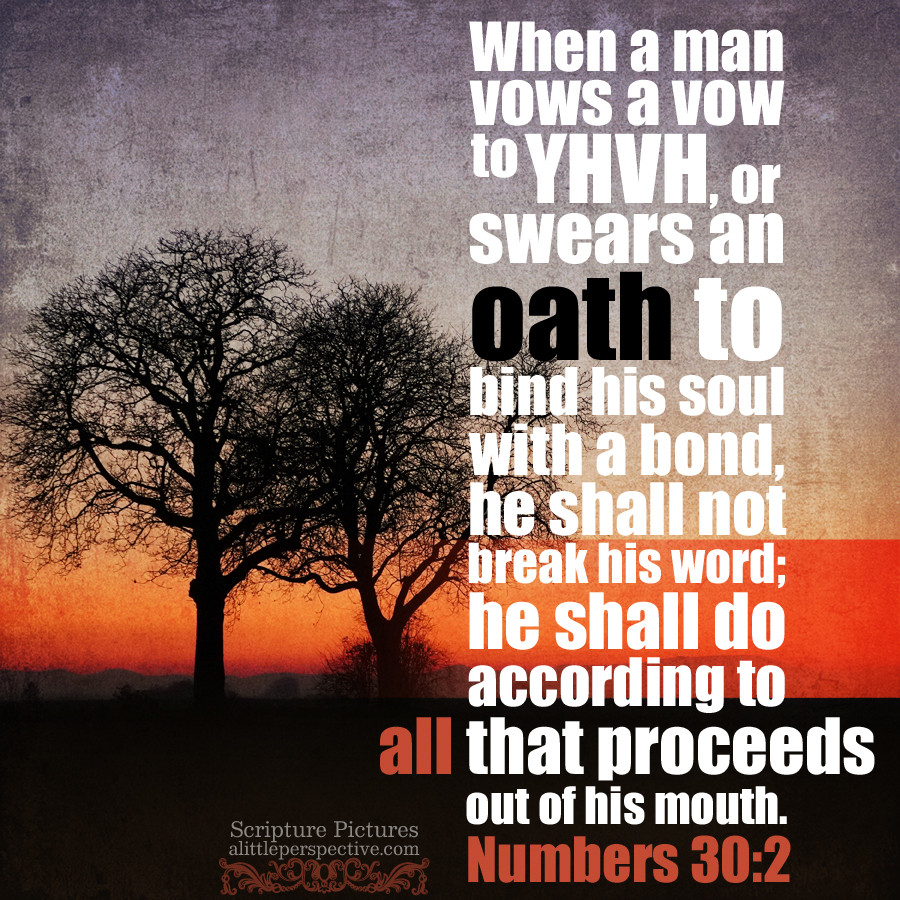Read Numbers 30:1-32:42 at Bible Gateway.
numbers 30:1-32:42, matot (tribes) chiastic structure 2013 jul 06
numbers 31-32, waging the Lord’s warfare 2011 mar 16
the teaching tools of scripture
The paragraph divisions and chiastic structure of matot are posted above. This week I have been meditating on the single theme of matot, but I could not get away from the first paragraph, a strong paragraph:
Num 30:1-16 {p} The law concerning vows
1a) Num 30:1-2, This is the thing which the Lord has commanded: a man who makes a vow shall not break his word;
1b) Num 30:3-8, A woman who makes a vow may be overruled by her father or husband on the day he hears it;
central axis) Num 30:9, “Also any vow of a widow or a divorced woman, by which she has bound herself, shall stand against her;
2b) Num 30:10-15, A woman’s vow shall stand if her husband does not overrule her;
2a) Num 30:16 {p} These are the statutes which the Lord commanded Moses.
Here is the part that stood out to me:
Num 30:3-5 and Num 30:6-8 are nearly exact repeats of each other in the 1B pair, the only difference being that a woman may be overruled by her father, or her husband, depending on whose authority she is living under. In the central axis, the woman is living under her own authority, so her vows shall stand.
Isn’t it interesting that vows spoken and oaths sworn stand against the person, and not for the person? Isn’t it interesting that vows and binding agreements afflict the soul (vs. 13)? This is why I believe the Scripture teaches we are to owe no man anything but love (Rom 13:8), for entering into a debt to be repaid is entering into a binding agreement, which stands against the person, which afflicts their soul.
But then there are two interesting phrases, each appearing in their half of the structure, and which I believe are paired phrases:
But if her father overrules her on the day that he hears, then none of her vows nor her agreements by which she has bound herself shall stand; and the Lord will release her, because her father overruled her. Num 30:5 (1B)
But if her husband overrules her on the day that he hears it, he shall make void her vow which she took and what she uttered with her lips, by which she bound herself, and the Lord will release her. Num 30:8 (1B repeat)
But if he does make them void after he has heard them, then he shall bear her guilt. Num 30:15 (2B)
When a father or husband overrules her vow, the words are still out there. Overruling the vow does not make the words spoken go away, nor the consequences or ramifications of them go away. But the guilt for the vow is transferred from the woman to her father or husband. She is released, and he is not – he bears her guilt.
Setting aside for the moment the appreciation we women must feel, first for the Lord to include such a provision in Torah (He is living with us with understanding as the weaker sex!) and second, for the self- sacrificial love of our fathers and husbands, who perform this act of love for us, let us just consider who Israel is.
She is the wife of YHVH, for the covenant He made with Israel at Sinai was in the form of a marriage covenant (Exo 19, Jer 31:32). He made void the binding agreements she made with other gods in the day He heard of them; He released her and bore her guilt Himself on the tree on Golgotha. Moreover, YHVH obeys His own Torah: every vow which He has spoken (and there are many) He shall keep; He shall not break His word, nor shall any word of His fall to the ground void.

















Leave a Reply